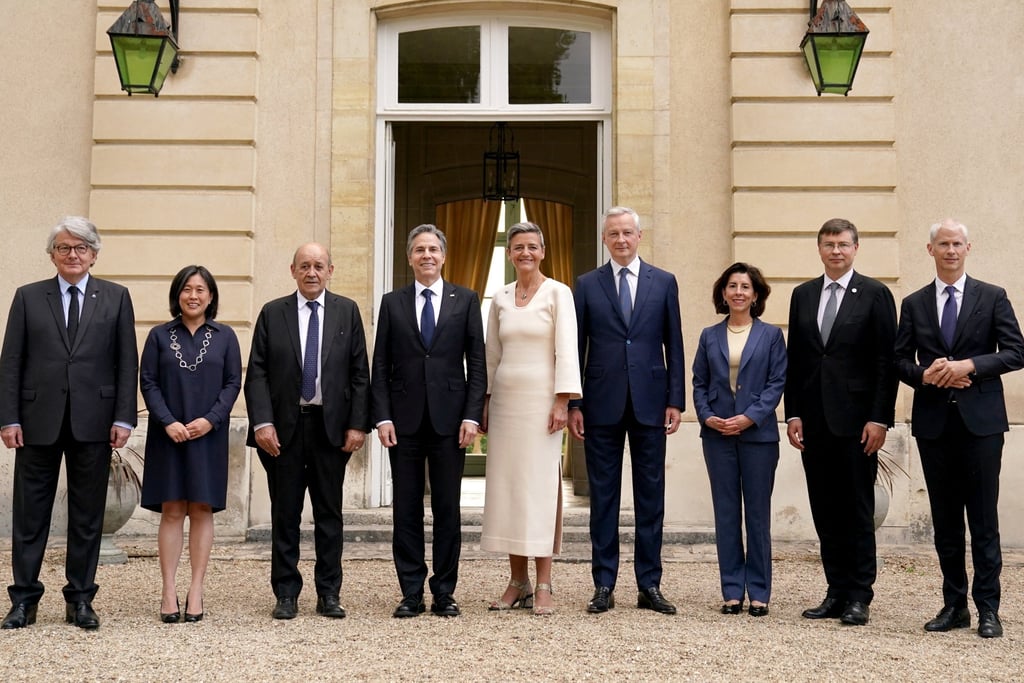Tech war: US-EU united front on tech to erode China’s supply chain advantages, analysts say
- Although Russia was mentioned 48 times in the council’s statement, US-EU common ground on principles underlying technology policies will also impact China
- TTC has vowed to facilitate cross-Atlantic information exchange on critical technologies and chip supply chain issues, and promote ‘trusted suppliers’

The united front in trade and tech forming between Washington and Brussels is likely to impede China’s access to advanced technologies and erode its supply chain advantages, according to analysts.
While the second US-EU Trade and Technology Council (TTC) meeting concluded on Monday without a specific action plan, the cross-Atlantic agreement on principles and ideologies underlying technology policies look set to generate headwinds for Beijing’s ambitions of becoming a global tech power.
Although Russia was the main target of enhanced cooperation between the US and EU – a 48-page statement from the meeting mentioned Russia 48 times – the document also has implications for China, even though the country was only referred to three times in the document.
For instance, US and EU officials agreed that “trade in technologies can be pivotal to the ability of autocratic countries to implement authoritarian policies, perpetrate human rights violations and abuses”, which could be used as a justification for further restrictions on certain tech exports to China.
Hu Xijin, the former chief editor of China’s state media Global Times, said in a WeChat blog that the original purpose of the council was to “deal with China”, as its stated purpose was to develop a supply chain that excludes the country and to “accelerate the decoupling between China and the West”.
Specifically, the TTC document highlighted concerns about China’s dominance in rare earth mining and production, as well as global semiconductor supply chain risks.

Mathieu Duchâtel, director of the Asia programme at Paris-based Institut Montaigne, said transatlantic coordination on tech issues could stymie China’s goal of catching up with the west in semiconductors, adding that the unprecedented tech-transfer controls imposed on Russia in the wake of its invasion of Ukraine were a “warning to China”.